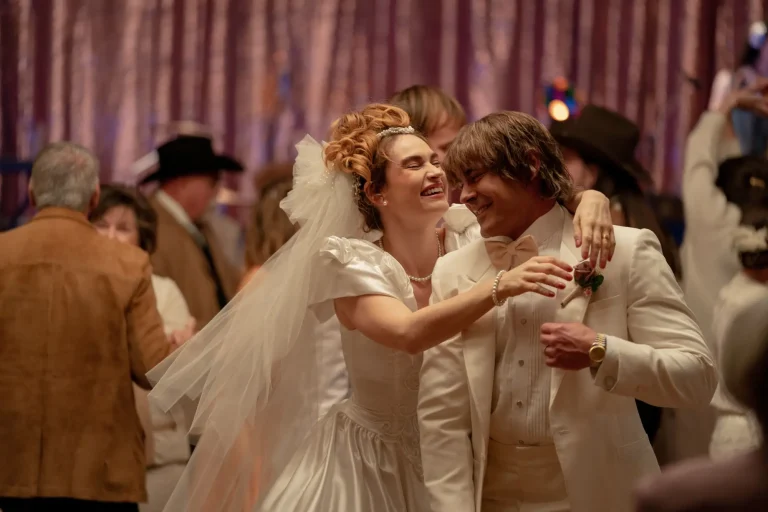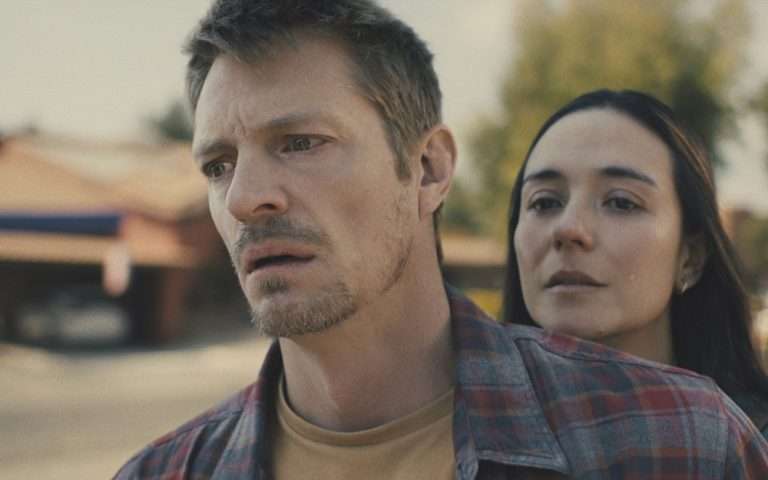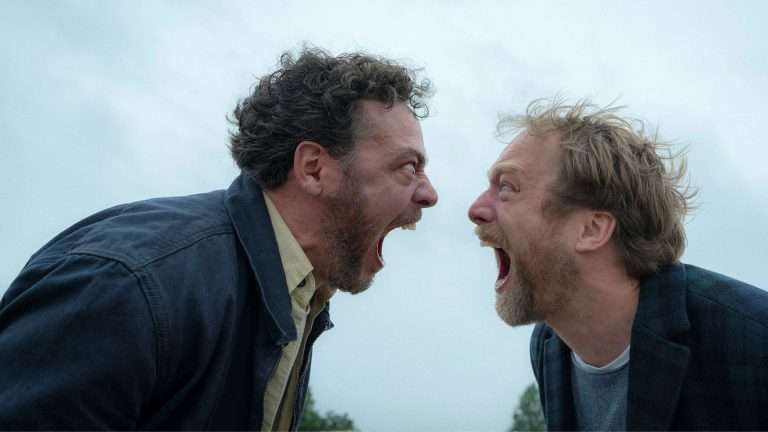“40 Acres” (2024) is set in a post-apocalyptic world, which may have seemed like a distant future in movies made until only a few years ago. Unlike them, R.T. Thorne’s film feels like a reality we will have to witness sooner or later. It’s a survival thriller with plenty of neatly designed action set pieces, but what makes it stand out is how urgent it all feels.
On the surface, it is about people trying to survive despite the dire situations by defeating whatever or whoever comes in their way. However, Thorne approaches it with a finer understanding of their cultural roots, balancing its grit with an emotional warmth.
Thorne’s film centres around a family. Danielle Deadwyler plays Hailey Freeman, a strong-willed and level-headed matriarch, while Michael Greyeyes plays Galen, her compatriot to care for their unit. It’s just them and both their children living on a piece of land in Canada that Hailey’s ancestors arrived at after the Civil War.
They live at a time when things have been so dire that your only shot at survival is going back to the basics of survival, where you hunt or get hunted. It’s the kind of stuff written in fables to teach kids what to avoid or adopt. However, in a world where even human decency and kindness are considered progressive, Thorne’s script feels closer to reality than it has ever done before.
Hailey and Galen live in a future where land ownership is not only a matter of strength, but also a need for sustenance. If you know how to grow and cultivate crops on your own, it might just be your biggest currency.
There’s no technology at work besides the radio signals for threadbare communication. That is why you must return to the basics and learn the necessary skills. It’s why even the youngest of Hailey’s kids know how to use a gun and shoot a person right in their head. It’s also why they are aware that they must protect everything they have, or someone else may snatch it from them at any given minute.
While teaching the kids these practical skills, they also guide them to grow their intellect. Just because everything has gone bust doesn’t mean they shouldn’t be curious about their history or humanity at large. It’s what leads their story from being just another survivalist tale, documenting the horrors of their everyday lives. There are enough dangers surrounding them, whether from humans out to get their resources or them. Thorne makes us feel the omnipresent danger and a suspenseful dread. However, he also leaves enough space to build their family dynamic.

It’s why we feel so invested in these characters. We don’t see them only as the fearsome fighters that they become out of necessity. Instead, we see them as a family celebrating everyone’s small wins just as proudly as they would have done so years ago. Through his direction, Thorne introduces brief emotional moments to let a mutual sense of familial warmth breathe organically. He doesn’t turn it into a theatrical display of affection. Instead, these moments appear subdued, and so does the underlying allegory.
At its core, the film is about the cyclical nature of life and human evolution. It’s how Hailey struggles to fight for preservation and reclamation, several decades after her ancestors did the same. It also leads Galen to embrace his indigenous roots, teaching his daughter their ancestral tongue that may die if not for a conscious act of preservation. However, the film isn’t a declaration of accepting what is being handed over from past generations. It advocates for due scrutiny as the characters learn to differentiate between disagreements and disrespect.
The script, written by Thorne with Glenn Taylor, addresses intergenerational conflicts while discussing faith, morals, and evolution in a single breath. Yet, it doesn’t let that bog down its dramatic momentum. Beyond its thematic explorations, “40 Acres” also features some stunningly choreographed action scenes that do not depend on flashier displays of violence. Such acts sometimes appear strategic and otherwise plain hideous, faithfully representing the brutality at large. There are also some scenes that shine precisely because they avoid the conventional drama.
One of them happens in a pitch black room, which becomes a playground of sorts for bullets hitting anywhere and everywhere. It offers just enough hint of drama, with a suspense that might make you want to hold your breath.
Apart from all its bloodshed or heavier discussions, the film is filled with casual humor that further humanizes their story. It’s almost there to remind us of how we do the things we do to experience the connection we feel with each other.
After all, everything we do is to experience these comforting moments of connection with those we love. Whether it’s Deadwyler, Greyeyes, or the younger cast of Kataem O’Connor, Leenah Robinson, and Milcania Diaz-Rojas, their performances make this sentiment resonate as deeply as it does.





![Nocturnal Animals [2016] : A Hypnotic Fever Dream](https://79468c92.delivery.rocketcdn.me/wp-content/uploads/2017/02/Amy-Adams-in-Nocturnal-Animals-768x511.jpg)


